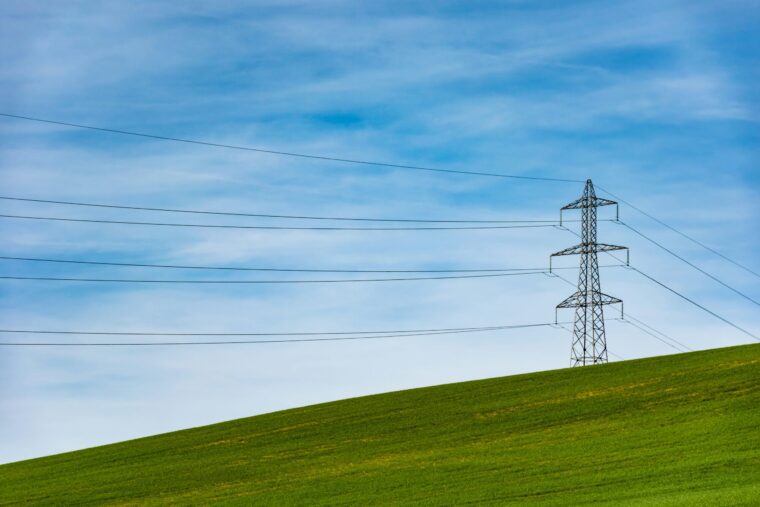
America’s power transmission lines are like the highways of the electric grid, but increasingly traffic is getting backed up, leaving electrons of energy with nowhere to go. But with a $1.5 billion boost from the Department of Energy (DOE), four major projects will proceed, improving the viability of new clean energy projects and potentially making the grid more reliable.
Big wind and solar power arrays are often located in rural areas. High voltage transmission lines allow power to flow from where it is generated to substations located in towns and cities. At the substation, electricity is transferred to lower-voltage power lines that bring it to homes and businesses.
RELATED: Texas plans to expand fund for growing state’s power grid to $10 billion
As more clean energy sources have been built, investments in transmission lines have not kept up. On very windy or sunny days, wind and solar power sometimes produces more electricity than the transmission lines can handle. As a result, transmission capacity has become one of the biggest bottlenecks in transitioning the grid fully toward clean energy.
The $1.5 billion investment announced by DOE looks to address these transmission challenges head-on. This funding comes from the Transmission Facilitation Program, a revolving fund program established under the 2021 Infrastructure Investment and Jobs Act. The program is designed to help overcome financial hurdles facing transmission development, acting as a catalyst for projects that might otherwise struggle to secure funding.
With $425 million in funding from the DOE, one of the four projects is the Aroostook Renewable Project in Maine. The investment will support construction of a new substation in Haynesville and a 111-mile transmission line with a capacity of 1,200 megawatts. This project will connect northern Maine’s low-cost clean energy to the New England power grid, creating over 4,200 construction jobs and 30 permanent positions.
Awarded a grant of $306 million, the Cimarron Link is a 400-mile high-voltage direct-current transmission line across Oklahoma from Texas County to Tulsa. With a capacity of 1,900 megawatts, it will deliver low-cost wind and solar energy to growing load centers in eastern Oklahoma and the Southwest Power Pool, the interconnected grid that covers most of the great plains and extends into parts of Arkansas, Missouri and Texas. The project is expected to create more than 3,600 construction jobs and 20 permanent operations jobs.
The Southern Spirit project was awarded $360 million to construct a 320-mile high-voltage direct-current line connecting the main Texas grid ERCOT with southeastern U.S. power markets from neighboring Louisiana and Mississippi for the first time. This connection will enhance reliability during extreme weather events and provide 3,000 megawatts of bidirectional capacity. The project is slated to create 850 construction jobs and 305 permanent operations jobs.
With $352 million, the last project to receive funding is Southline Phase 2. The goal of the project is to build a 108-mile transmission line in New Mexico, delivering 1,000 megawatts of new, bidirectional capacity between Hidalgo County and Las Cruces. This project aims to create at least 150 new construction jobs and help meet the energy needs of industries investing in the region, including semiconductor and battery manufacturing facilities.
In total, these projects are expected to enable nearly 1,000 miles of new transmission development and 7,100 megawatts of new capacity throughout six states, while creating nearly 9,000 construction jobs and several hundred full time positions. In addition to this near-term investment, the DOE released its National Transmission Planning Study, which projects that the United States will need to approximately double or triple its transmission capacity by 2050 to meet growing demand and reliability needs.
Photo by Thomas Despeyroux on Unsplash
The post Department of Energy investing $1.5 billion in new transmission lines appeared first on Government Market News.
